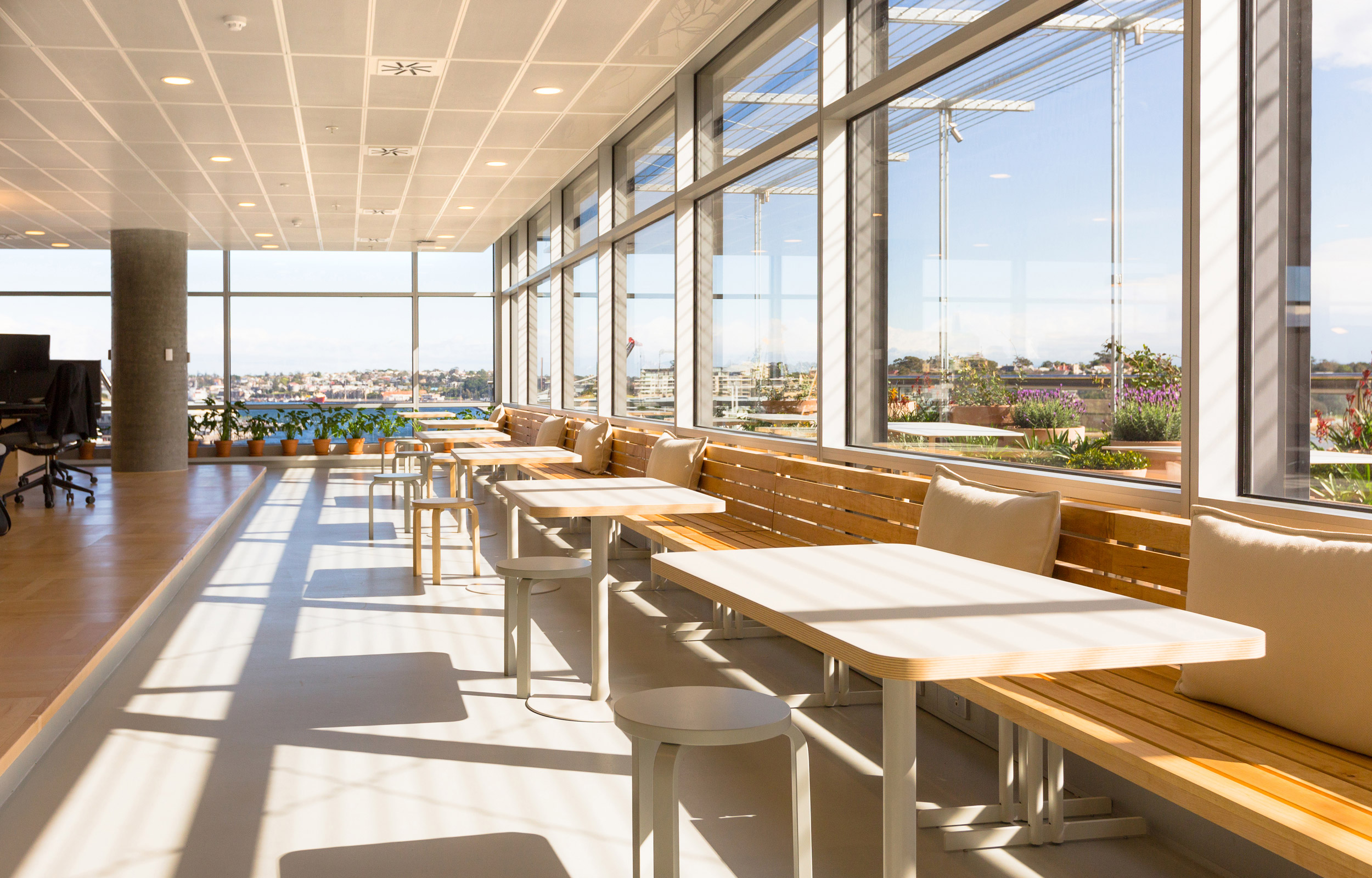
Working with light
Light is the visible energy that animates space and gives life to form and colour.
Down“We are born of light. The seasons are felt through light. We only know the world as it is evoked by light.”Louis Kahn—Architect
Light is part of the choreography of space
Natural light during the day enhances the plasticity of a structure and provides an awareness of time, which is essential for people’s wellbeing.
Roche buildings are composed with a balanced use of natural light. The combination of daylight and artificial lighting schemes for workplaces are important planning aspects.
Natural light through skylights, and visual connections to the outdoors provide a creative environment. Solar and glare protection should be considered to ensure optimum comfort.
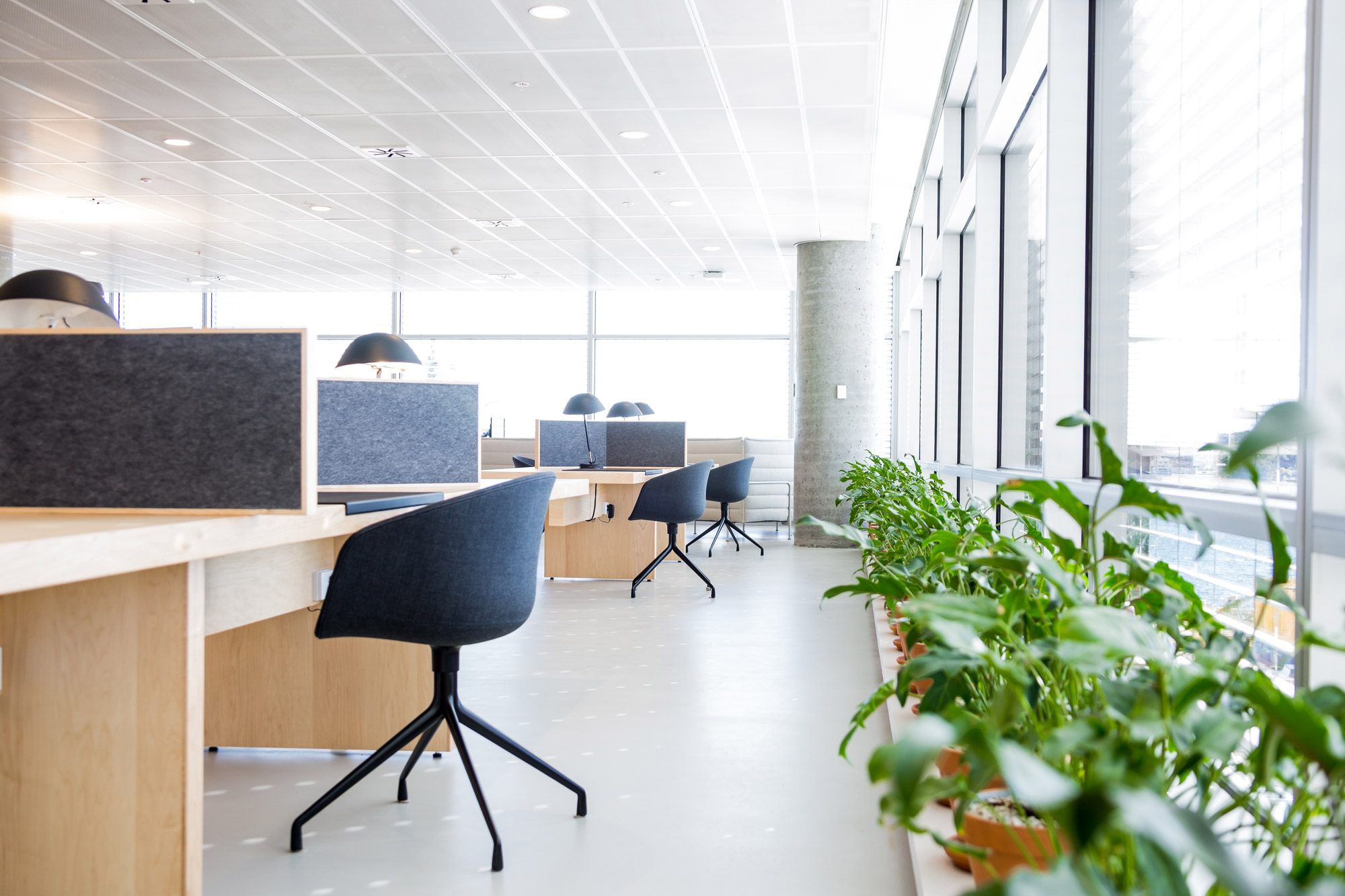
The amount of daylight coming into a building is relative to the depth of space, the height of the windows and the reflected light depending on the colour of interior finishes. Consider this when planning, as natural light is essential for all permanent workplaces.
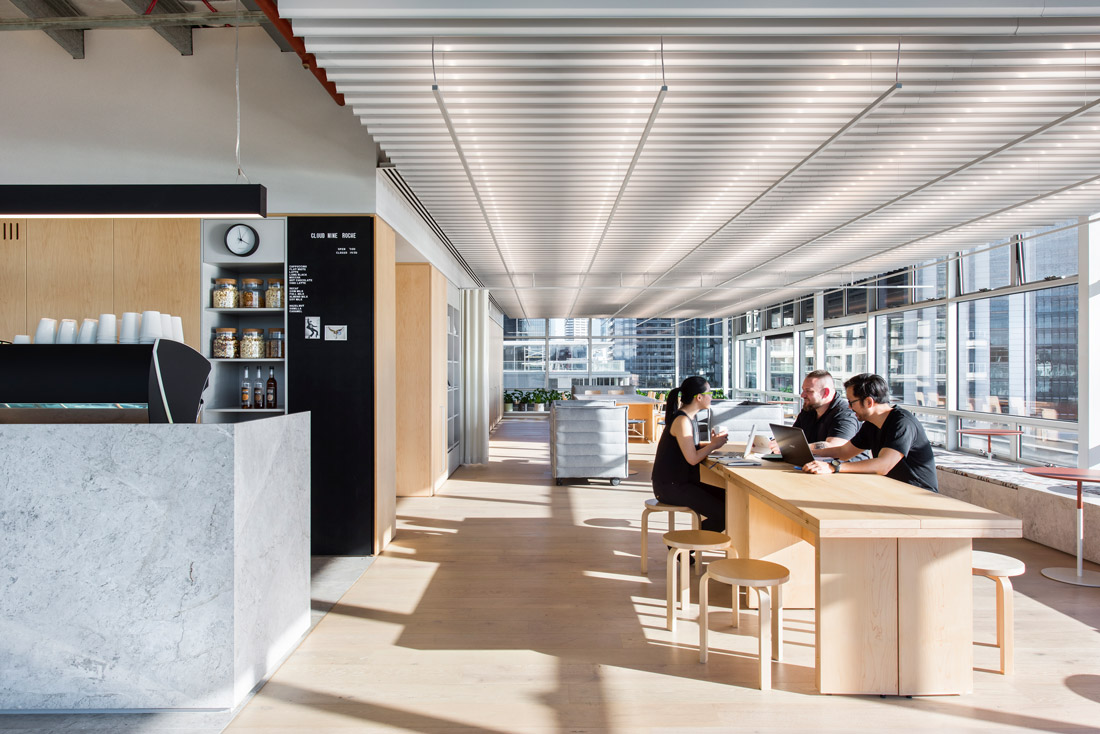
Window area
Consider:
- Window proportions.
- Glare control from sunlight.
- Heat gain / solar shading.
- Floor plate depth from glazed façade.
- Combination of daylight and artificial lighting.
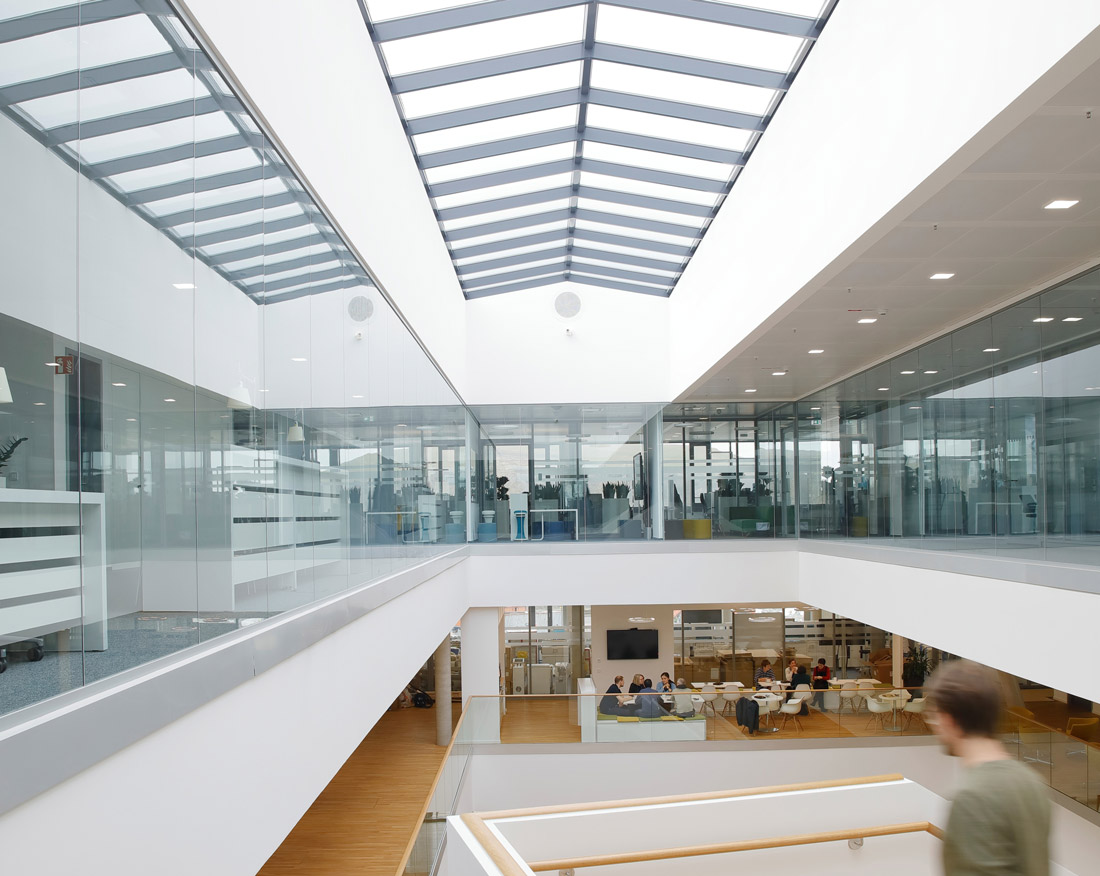
Daylight
Consider:
- Bringing daylight in through the atrium, skylights, loggias, and any other opportunity across the building.
- Orientation.
- Colours of interior finishes.
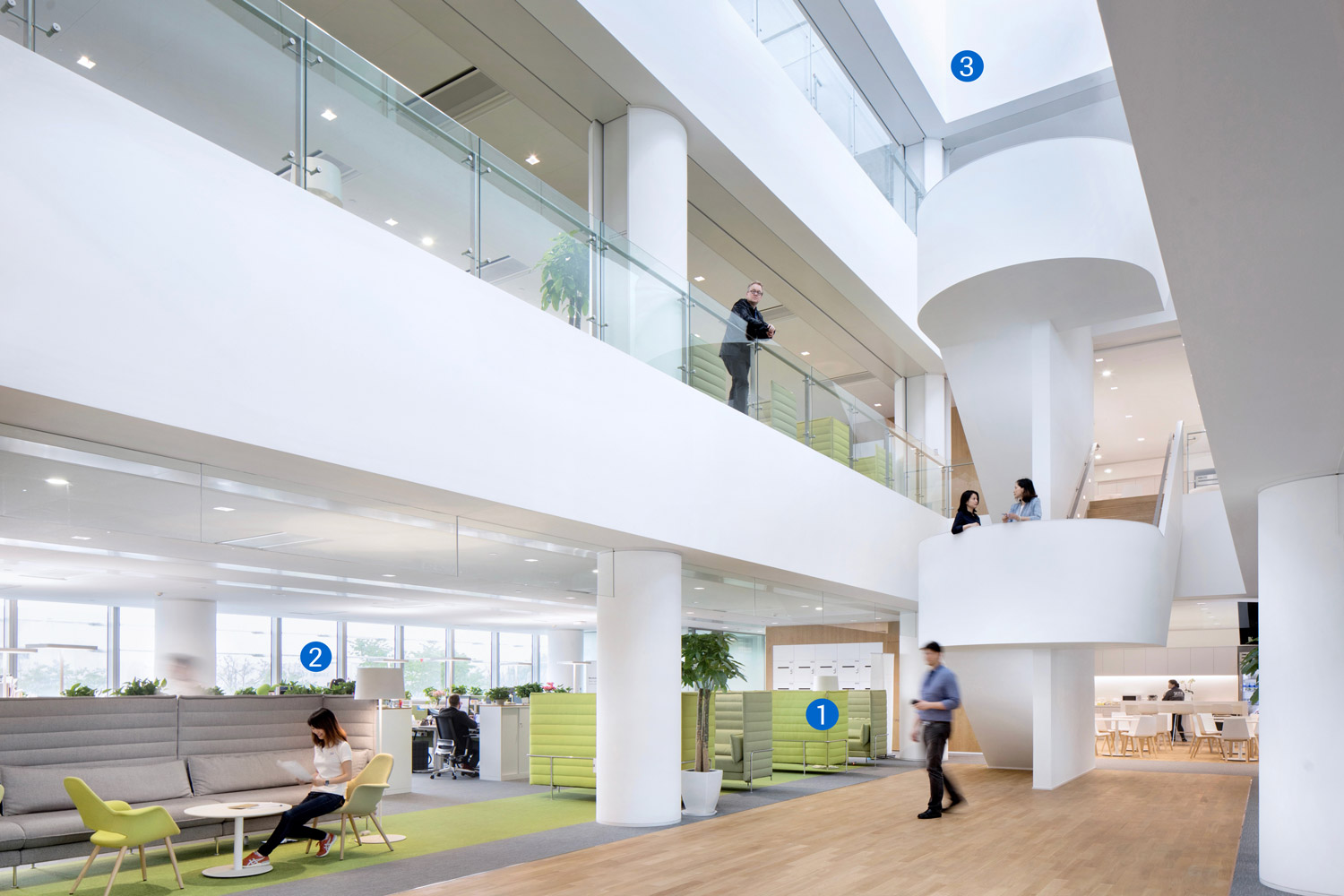
A balance of light
Artificial light is a complement to natural light and serves to highlight the character and atmosphere of a building. The quality of artificial light is important to simulate daylight.
A concise lighting concept is instrumental for the specific use and atmosphere of the space, as it projects order and rhythm in relationship to building structure, orientation, and spatial emphasis.
Lighting design should consider zoning in the use of space and integration of sensors for energy optimization. Night-time light pollution should be minimized.
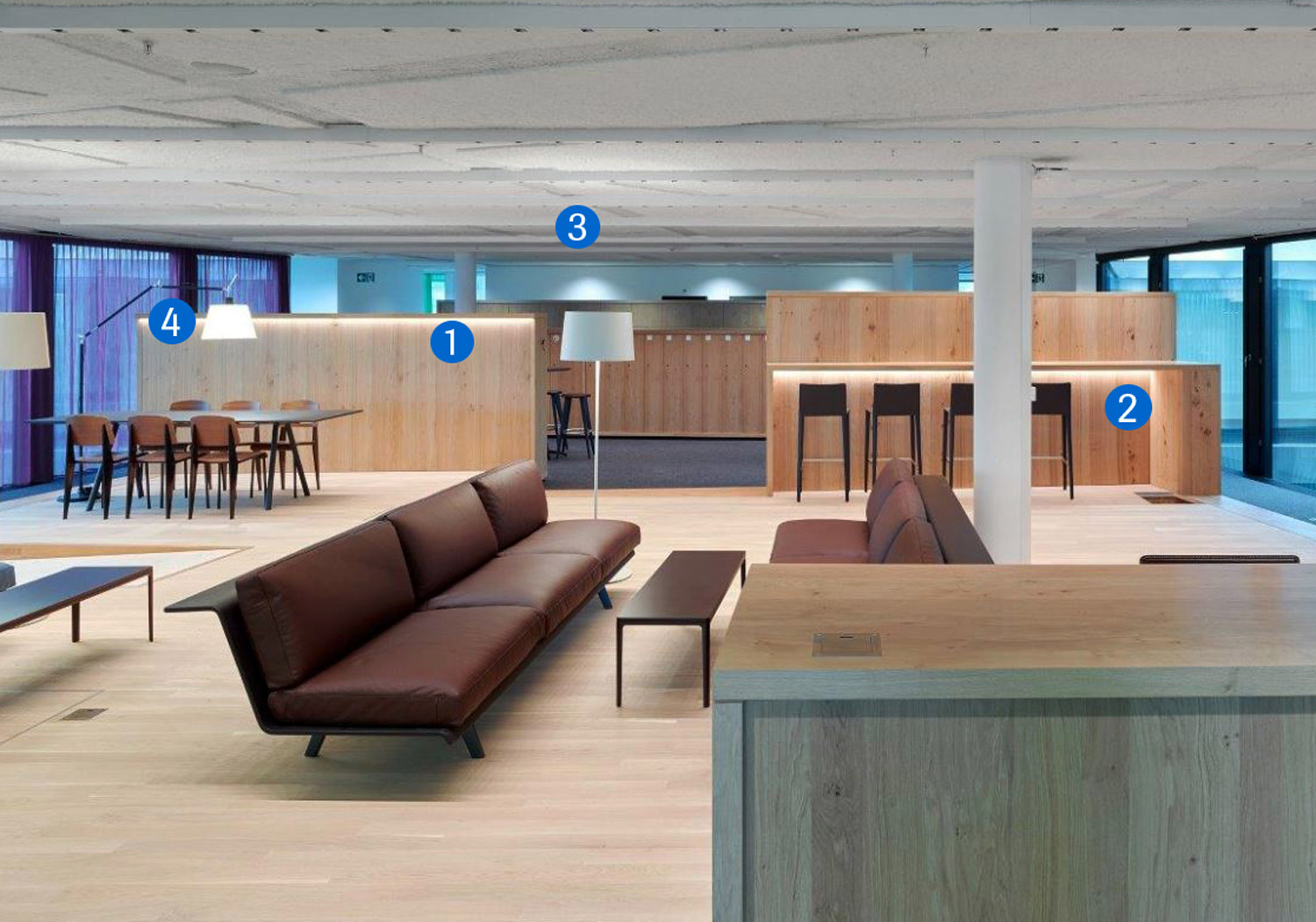
Key to Working with light
- Consider the relationship between window area and depth of space to achieve right levels of natural light.
- Natural light is essential for all permanent workplaces, provide shading and glare control for user comfort.
- Provide visual connections to the exterior.
- Achieve a balanced combination of natural and artificial light.